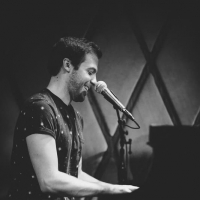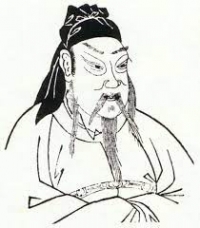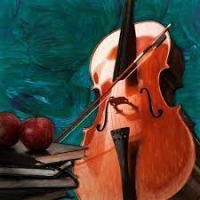Latest Sheet Music
Aram Khachaturian
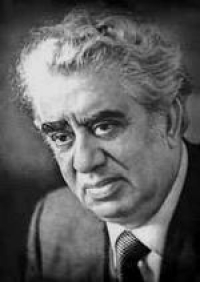
Aram Ilyich Khachaturian (Armenian: Արամ Խաչատրյան; Russian: Ара́м Ильи́ч Хачатуря́н; June 6 1903 – May 1, 1978) was a prominent Soviet Armenian composer. Khachaturian's works were often influenced by classical Russian music and Armenian folk music. He is most famous for the Adagio of Spartacus and Phrygia from his ballet Spartacus, and for the "Sabre Dance" from his ballet Gayane and the adagio from the same ballet, much used in films since its first use in Stanley Kubrick's 2001: A Space Odyssey.
jazz violin
Hezekiah Leroy Gordon Smith, better known as Stuff Smith, was an American jazz violinist. He is well known for the song "If You're a Viper". Smith was, along with Stéphane Grappelli, Michel Warlop, Svend Asmussen, Ray Nance and Joe Venuti, one of jazz music's preeminent violinists of the swing era.
Jeremiah Clarke
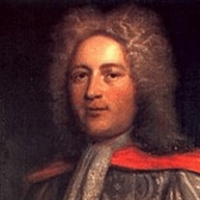
Jeremiah Clarke (c. 1674 – 1 December 1707) was an English baroque composer and organist, best known for his Trumpet Voluntary, a popular piece often played at wedding ceremonies.The exact date of Clarke's birth has been debated. The Dictionary of National Biography states that Clarke "is said to have been born in 1669 (though probably the date should be earlier)." Most sources say that he is thought to have been born in London around 1674.Clarke was one of the pupils of John Blow at St Paul's Cathedral and a chorister in 1685 at the Chapel Royal. Between 1692 and 1695 he was an organist at Winchester College, then between 1699 and 1704 he was an organist at St Paul's Cathedral. He later became an organist and 'Gentleman extraordinary' at the Chapel Royal, he shared that post with fellow composer William Croft, his friend. They were succeeded by John Blow.
Traditional

Robert Lowden
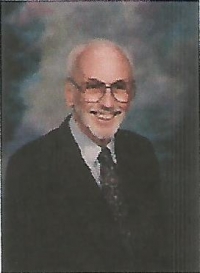
Robert William (Bob) Lowden Robert William Lowden (23 July 1920, Camden, N.J. – 30 October 1998, Medford, N.J.) was an American composer and arranger. Mr. Lowden attended Temple University as a music education student and later became a trombonist and arranger with the U.S. Army Band. He also did arranging for Claude Thornhill and Oscar Dumont.
Bohemian Rhapsody
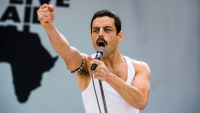
With his impeccable vocal abilities, Freddie Mercury and his rock band, Queen, achieve superstardom. However, amidst his skyrocketing success, he grapples with his ego, sexuality and a fatal illness.
Jerzy Matuszkiewicz
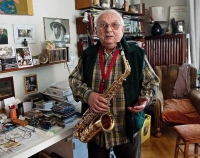
Jerzy "Duduś" Matuszkiewicz was a Polish jazz musician and composer, playing saxophone, clarinet and piano. Between 1950 and 1958, he was leader of the jazz group Melomani. From 1965, he focused on composing music for films.
Giuseppe Tartini

Giuseppe Tartini (8 April 1692 – 26 February 1770) was an Italian Baroque composer and violinist born in the Republic of Venice.Tartini was born in Piran (now part of Slovenia), a town on the peninsula of Istria, in the Republic of Venice to Gianantonio – native of Florence – and Caterina Zangrando, a descendant of one of the oldest aristocratic Piranese families.it appears Tartini's parents intended him to become a Franciscan friar and, in this way, he received basic musical training. Tartini studied violin first at the collegio delle Scuole Pie in Capodistria (today Koper).
Jorge Variego
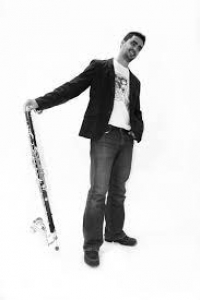
Designs will be offered by composer/artist Jorge Variego, director of the Domino Ensemble and internationally renowned for his creative work.
Henry Purcell

Henry Purcell (pronounced /ˈpɜrsəl/; 10 September 1659 (?) – 21 November 1695), was an English organist and Baroque composer of secular and sacred music. Although Purcell incorporated Italian and French stylistic elements into his compositions, his legacy was a uniquely English form of Baroque music.
Music theory

Music theory is the study of the practices and possibilities of music. The Oxford Companion to Music describes three interrelated uses of the term "music theory"
Gustavo O. Sbaco

Gustavo O. Sbaco composer Composer Time PeriodComp. Period, Modern. Piece Style, Modern. Instrumentation, 5 violins, cello or 3 violins, 2 violas, cello and Doublebass ...
Georges Hüe
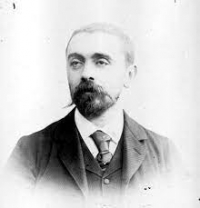
Georges Adolphe Hüe (6 May 1858 – 7 June 1948) was a French composer of classical music.Hüe was born in Versailles into a noted family of architects. His musical education included studies with Charles Gounod and César Franck. In 1879, he won the Prix de Rome with his cantata Médée. Upon his return to Paris, the Opéra Comique produced his first stage work, Les Pantins ("The Jumping Jacks"). This plotless, two-act set-piece for four singers doubling roles completely ignored fashionable realist trends of the day, and won high acclaim. For the next twenty years, his musical career went in other directions.
Sean Kingston
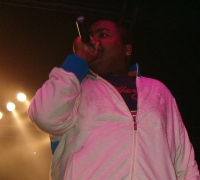
Sean Kingston (born Kisean Jamal Anderson on February 3, 1990) is a Jamaican-American reggae fusion singer and rapper. He is best known for his debut single and #1 hit Beautiful Girls.
Ludwig van Beethoven

Ludwig van Beethoven (/ˈlʊdvɪɡ væn ˈbeɪt(h)oʊvən/ (About this soundlisten); German: (About this soundlisten); baptised 17 December 1770 – 26 March 1827) was a German composer and pianist. A crucial figure in the transition between the classical and romantic eras in classical music, he remains one of the most recognized and influential musicians of this period, and is considered to be one of the greatest composers of all time.
Beethoven was born in Bonn, the capital of the Electorate of Cologne, and part of the Holy Roman Empire. He displayed his musical talents at an early age and was vigorously taught by his father Johann van Beethoven, and was later taught by composer and conductor Christian Gottlob Neefe. At age 21, he moved to Vienna and studied composition with Joseph Haydn. Beethoven then gained a reputation as a virtuoso pianist, and was soon courted by Prince Lichnowsky for compositions, which resulted in Opus 1 in 1795.
Beethoven was born in Bonn, the capital of the Electorate of Cologne, and part of the Holy Roman Empire. He displayed his musical talents at an early age and was vigorously taught by his father Johann van Beethoven, and was later taught by composer and conductor Christian Gottlob Neefe. At age 21, he moved to Vienna and studied composition with Joseph Haydn. Beethoven then gained a reputation as a virtuoso pianist, and was soon courted by Prince Lichnowsky for compositions, which resulted in Opus 1 in 1795.
Relient K
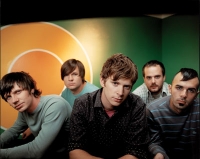
Relient K is an American rock band formed in Canton, Ohio in 1998 by Matthew Thiessen on guitar and piano, Brian Pittman on bass, and Matt Hoopes on guitar between the band's junior year in high school and their time at Malone College in Canton, Ohio. The band is named after guitarist Matt Hoopes' Plymouth Reliant K car, with the spelling intentionally altered to avoid trademark infringement over the Reliant name.
The group is associated with the Contemporary Christian Music culture, most notably the Christian rock and Christian punk scene. Despite being a Christian band the group has performed alongside secular artists, and has had critical success with mainstream pop punk. The band's sound incorporates piano rock and acoustic elements; and the lyrical content often refers to God, Jesus, and the terms "you" and "Him" are used in reference to The Divine. Since its formation, Relient K has released a discography consisting of five studio albums, seven EPs, two Christmas albums, and one collection of rarities. The band has received numerous awards including a Grammy Award nomination in 2003 for Best Rock Gospel Album and two Dove Awards.
Relient K is best known commercially for their two studio albums which peaked in the top 15 of the US Billboard 200 chart. After signing with Capitol Records, they broke into the mainstream in 2004 with the release of Mmhmm, which debuted at #15 on the Billboard 200. In 2007, their fifth album brought the most success for Relient K, Five Score and Seven Years Ago debuted at #6 on the US Billboard 200 and sold 60,000 records in its debut week. The band has sold over 2 million records, with three albums being given Gold certification by the RIAA. The band is also highly successful throughout the Christian Albums and Contemporary Christian Music charts.
The group is associated with the Contemporary Christian Music culture, most notably the Christian rock and Christian punk scene. Despite being a Christian band the group has performed alongside secular artists, and has had critical success with mainstream pop punk. The band's sound incorporates piano rock and acoustic elements; and the lyrical content often refers to God, Jesus, and the terms "you" and "Him" are used in reference to The Divine. Since its formation, Relient K has released a discography consisting of five studio albums, seven EPs, two Christmas albums, and one collection of rarities. The band has received numerous awards including a Grammy Award nomination in 2003 for Best Rock Gospel Album and two Dove Awards.
Relient K is best known commercially for their two studio albums which peaked in the top 15 of the US Billboard 200 chart. After signing with Capitol Records, they broke into the mainstream in 2004 with the release of Mmhmm, which debuted at #15 on the Billboard 200. In 2007, their fifth album brought the most success for Relient K, Five Score and Seven Years Ago debuted at #6 on the US Billboard 200 and sold 60,000 records in its debut week. The band has sold over 2 million records, with three albums being given Gold certification by the RIAA. The band is also highly successful throughout the Christian Albums and Contemporary Christian Music charts.
James Rae
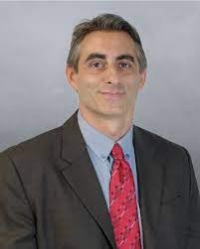
James Rae was born on Tyneside in 1957. He studied clarinet, bass clarinet, piano and composition at the Guildhall School of Music and Drama from 1975-79. ... Since leaving the Guildhall, he has pursued a highly successful and varied career. His work falls into three areas, performing, writing and teaching.
John Stanley
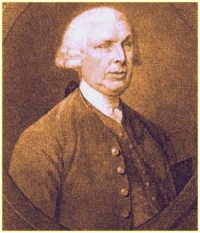
Charles John Stanley (17 January 1712 Old Style – 19 May 1786) was an English composer and organist.
John Stanley was born in London on 17 January 1712. At about the age of two, he fell on a marble hearth with a china basin in his hand, an accident which left him almost blind.He began studying music at the age of seven. Under the guidance of Maurice Greene, composer and organist at St. Paul's Cathedral, he studied "with great diligence, and a success that was astonishing" (Burney). At the age of nine he played the organ, probably as an occasional deputy, at All Hallows Bread Street. When he was eleven years old, Stanley was appointed organist to the church at a salary of £20 per annum.
When he was fourteen "in preference to a great number of candidates" (Burney) he was chosen as organist at St Andrew's, Holborn, and at the age of seventeen became the youngest person ever to obtain the Bachelor of Music degree (B.Mus.) at the University of Oxford
John Stanley was born in London on 17 January 1712. At about the age of two, he fell on a marble hearth with a china basin in his hand, an accident which left him almost blind.He began studying music at the age of seven. Under the guidance of Maurice Greene, composer and organist at St. Paul's Cathedral, he studied "with great diligence, and a success that was astonishing" (Burney). At the age of nine he played the organ, probably as an occasional deputy, at All Hallows Bread Street. When he was eleven years old, Stanley was appointed organist to the church at a salary of £20 per annum.
When he was fourteen "in preference to a great number of candidates" (Burney) he was chosen as organist at St Andrew's, Holborn, and at the age of seventeen became the youngest person ever to obtain the Bachelor of Music degree (B.Mus.) at the University of Oxford
Georges Bizet

Georges Bizet (25 October 1838 – 3 June 1875) was a French composer and pianist of the Romantic era. He is best known for the opera Carmen.
Bizet was born at 26 rue de la Tour d'Auvergne in the 9th arrondissement of Paris in 1838. He was registered with the legal name Alexandre César Léopold Bizet, but he was baptised on 16 March 1840 with the first name Georges, and he was always known thereafter as Georges Bizet. His father Adolphe Armand Bizet (1810-86) was an amateur singer and composer, and his mother, Aimée Léopoldine Joséphine née Delsarte (1814-61), was the sister of the famous singing teacher François Delsarte.
He entered the Paris Conservatory of Music on 9 October 1848, a fortnight before his tenth birthday. His teachers there were Pierre Zimmermann (fugue and counterpoint; often assisted by his son-in-law Charles Gounod), Antoine François Marmontel (piano), François Benoist (organ) and, on Zimmermann's death, Fromental Halévy, whose daughter he himself later married. He won first prizes for organ and fugue in 1855 and completed his earliest compositions.
His first symphony, the Symphony in C, was written in November 1855, when he was seventeen, evidently as a student assignment. It was unknown to the world until 1933, when it was discovered in the archives of the Paris Conservatory library. Upon its first performance in 1935, it was immediately hailed as a junior masterwork and a welcome addition to the early Romantic period repertoire. The symphony bears a stylistic resemblance to the first symphony of Gounod, first played earlier in the same year, and which Bizet had arranged for two pianos although present-day listeners may discern a similarity to music of Franz Schubert, whose work was little known in France at the time the symphony was written.
In 1857, a setting of the one-act operetta Le docteur Miracle won him a share in a prize offered by Jacques Offenbach. He also won the music composition scholarship of the Prix de Rome, the conditions of which required him to study in Rome for three years. There, his talent developed as he wrote such works as the opera buffa Don Procopio (1858-59). There he also composed his only major sacred work, Te Deum (1858), which he submitted to the Prix Rodrigues competition, a contest for Prix de Rome winners only. Bizet failed to win the Prix Rodrigues, and the Te Deum score remained unpublished until 1971. He made two attempts to write another symphony in 1859, but destroyed the manuscripts in December of that year. Apart from this period in Rome, Bizet lived in the Paris area all his life.
Shortly after leaving Rome in July 1860, but while still touring in Italy, he had the idea of writing a symphony in which each of the four movements would be a musical evocation of a different Italian city – Rome, Venice, Florence and Naples. On hearing of his mother's serious illness he cut short his Italian travels and returned to Paris in September 1860; she died a year later. The Scherzo of the symphony was completed by November 1861, but it was not until 1866 that the first version of the whole symphony was written. He subjected it to a number of revisions through to 1871, but died before ever producing what he considered the definitive version. For this reason, the work is sometimes described as "unfinished", but this is an inaccurate description as it was fully scored. It was published in 1880 as the Roma Symphony.
Bizet was born at 26 rue de la Tour d'Auvergne in the 9th arrondissement of Paris in 1838. He was registered with the legal name Alexandre César Léopold Bizet, but he was baptised on 16 March 1840 with the first name Georges, and he was always known thereafter as Georges Bizet. His father Adolphe Armand Bizet (1810-86) was an amateur singer and composer, and his mother, Aimée Léopoldine Joséphine née Delsarte (1814-61), was the sister of the famous singing teacher François Delsarte.
He entered the Paris Conservatory of Music on 9 October 1848, a fortnight before his tenth birthday. His teachers there were Pierre Zimmermann (fugue and counterpoint; often assisted by his son-in-law Charles Gounod), Antoine François Marmontel (piano), François Benoist (organ) and, on Zimmermann's death, Fromental Halévy, whose daughter he himself later married. He won first prizes for organ and fugue in 1855 and completed his earliest compositions.
His first symphony, the Symphony in C, was written in November 1855, when he was seventeen, evidently as a student assignment. It was unknown to the world until 1933, when it was discovered in the archives of the Paris Conservatory library. Upon its first performance in 1935, it was immediately hailed as a junior masterwork and a welcome addition to the early Romantic period repertoire. The symphony bears a stylistic resemblance to the first symphony of Gounod, first played earlier in the same year, and which Bizet had arranged for two pianos although present-day listeners may discern a similarity to music of Franz Schubert, whose work was little known in France at the time the symphony was written.
In 1857, a setting of the one-act operetta Le docteur Miracle won him a share in a prize offered by Jacques Offenbach. He also won the music composition scholarship of the Prix de Rome, the conditions of which required him to study in Rome for three years. There, his talent developed as he wrote such works as the opera buffa Don Procopio (1858-59). There he also composed his only major sacred work, Te Deum (1858), which he submitted to the Prix Rodrigues competition, a contest for Prix de Rome winners only. Bizet failed to win the Prix Rodrigues, and the Te Deum score remained unpublished until 1971. He made two attempts to write another symphony in 1859, but destroyed the manuscripts in December of that year. Apart from this period in Rome, Bizet lived in the Paris area all his life.
Shortly after leaving Rome in July 1860, but while still touring in Italy, he had the idea of writing a symphony in which each of the four movements would be a musical evocation of a different Italian city – Rome, Venice, Florence and Naples. On hearing of his mother's serious illness he cut short his Italian travels and returned to Paris in September 1860; she died a year later. The Scherzo of the symphony was completed by November 1861, but it was not until 1866 that the first version of the whole symphony was written. He subjected it to a number of revisions through to 1871, but died before ever producing what he considered the definitive version. For this reason, the work is sometimes described as "unfinished", but this is an inaccurate description as it was fully scored. It was published in 1880 as the Roma Symphony.
Oleg Taganov
Composer Oleg Taganov ... The works of O. Taganov performed by Marina Matveeva (read his poems and playing the piano), Svetlana Antonova ...
Vivaldi

Antonio Lucio Vivaldi (March 4, 1678 â July 28, 1741), nicknamed il Prete Rosso ("The Red Priest"), was a Venetian priest and Baroque music composer, as well as a famous virtuoso violinist; he was born and raised in the Republic of Venice. The Four Seasons, a series of four violin concerti, is his best-known work and a highly popular Baroque piece.
Many of Vivaldi's compositions reflect a flamboyant, almost playful, exuberance. Most of Vivaldi's repertoire was rediscovered only in the first half of the 20th century in Turin and Genoa and was published in the second half. Vivaldi's music is innovative, breaking a consolidated tradition in schemes; he gave brightness to the formal and the rhythmic structure of the concerto, repeatedly looking for harmonic contrasts and innovative melodies and themes. Moreover, Vivaldi was able to compose nonacademic music, particularly meant to be appreciated by the wide public and not only by an intellectual minority. The joyful appearance of his music reveals in this regard a transmissible joy of composing; these are among the causes of the vast popularity of his music. This popularity soon made him famous in other countries such as France which was, at the time, very independent concerning its musical taste.
Vivaldi is considered one of the composers who brought Baroque music (with its typical contrast among heavy sonorities) to evolve into a classical style. Johann Sebastian Bach was deeply influenced by Vivaldi's concertos and arias (recalled in his Johannes Passion, Matthäuspassion, and cantatas). Bach transcribed a number of Vivaldi's concerti for solo keyboard, along with a number for orchestra, including the famous Concerto for Four Violins and Violoncello, Strings and Continuo (RV 580).
Many of Vivaldi's compositions reflect a flamboyant, almost playful, exuberance. Most of Vivaldi's repertoire was rediscovered only in the first half of the 20th century in Turin and Genoa and was published in the second half. Vivaldi's music is innovative, breaking a consolidated tradition in schemes; he gave brightness to the formal and the rhythmic structure of the concerto, repeatedly looking for harmonic contrasts and innovative melodies and themes. Moreover, Vivaldi was able to compose nonacademic music, particularly meant to be appreciated by the wide public and not only by an intellectual minority. The joyful appearance of his music reveals in this regard a transmissible joy of composing; these are among the causes of the vast popularity of his music. This popularity soon made him famous in other countries such as France which was, at the time, very independent concerning its musical taste.
Vivaldi is considered one of the composers who brought Baroque music (with its typical contrast among heavy sonorities) to evolve into a classical style. Johann Sebastian Bach was deeply influenced by Vivaldi's concertos and arias (recalled in his Johannes Passion, Matthäuspassion, and cantatas). Bach transcribed a number of Vivaldi's concerti for solo keyboard, along with a number for orchestra, including the famous Concerto for Four Violins and Violoncello, Strings and Continuo (RV 580).
Mozart

Wolfgang Amadeus Mozart, full name Johann Chrysostom Wolfgang Amadeus Mozart (27 January 1756 â 5 December 1791) was a prolific and influential composer of the Classical era. His over 600 compositions include works widely acknowledged as pinnacles of symphonic, concertante, chamber, piano, operatic, and choral music. Mozart is among the most enduringly popular of classical composers, and many of his works are part of the standard concert repertoire.
Mozart's music, like Haydn's, stands as an archetypal example of the Classical style. His works spanned the period during which that style transformed from one exemplified by the style galant to one that began to incorporate some of the contrapuntal complexities of the late Baroque, complexities against which the galant style had been a reaction. Mozart's own stylistic development closely paralleled the development of the classical style as a whole. In addition, he was a versatile composer and wrote in almost every major genre, including symphony, opera, the solo concerto, chamber music including string quartet and string quintet, and the piano sonata. While none of these genres were new, the piano concerto was almost single-handedly developed and popularized by Mozart. He also wrote a great deal of religious music, including masses; and he composed many dances, divertimenti, serenades, and other forms of light entertainment.
The central traits of the classical style can be identified in Mozart's music. Clarity, balance, and transparency are hallmarks of his work.
Mozart's music, like Haydn's, stands as an archetypal example of the Classical style. His works spanned the period during which that style transformed from one exemplified by the style galant to one that began to incorporate some of the contrapuntal complexities of the late Baroque, complexities against which the galant style had been a reaction. Mozart's own stylistic development closely paralleled the development of the classical style as a whole. In addition, he was a versatile composer and wrote in almost every major genre, including symphony, opera, the solo concerto, chamber music including string quartet and string quintet, and the piano sonata. While none of these genres were new, the piano concerto was almost single-handedly developed and popularized by Mozart. He also wrote a great deal of religious music, including masses; and he composed many dances, divertimenti, serenades, and other forms of light entertainment.
The central traits of the classical style can be identified in Mozart's music. Clarity, balance, and transparency are hallmarks of his work.
Eugene Ysaye

Eugène Ysaÿe (French: ; 16 July 1858 – 12 May 1931) was a Belgian violinist, composer and conductor. He was regarded as "The King of the Violin", or, as Nathan Milstein put it, the "tsar".
Charlie Daniel
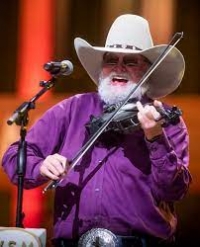
Charles Edward Daniels was an American singer, songwriter and multi-instrumentalist. Daniels' music encompassed multiple genres in a career spanning five decades, including southern rock, country rock, country, bluegrass, blues and gospel.
Calvin Custer
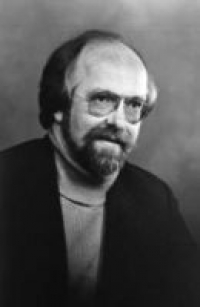
Calvin Custer (1939-1998) attended Carnegie Mellon University and Syracuse University. His composition teachers included Nikolai Lopatnikoff, Ernst Bacon, and Earl George. He also studied conducting with Karl Kritz, first music director of the Syracuse Symphony.
Sebastian Lee
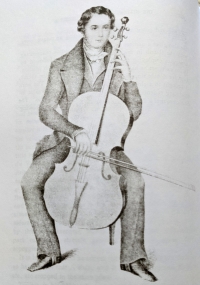
Sebastian Lee German cellistSebastian Lee was a German cellist and pedagogue active in France and Germany. Wikipedia
Born: December 24, 1805, Hamburg, Germany Died: January 4, 1887, Hamburg, Germany Books: Forty Melodic and Progressive Etudes: Op. 31 Book I and II, MORE
Born: December 24, 1805, Hamburg, Germany Died: January 4, 1887, Hamburg, Germany Books: Forty Melodic and Progressive Etudes: Op. 31 Book I and II, MORE
Marcos Valle
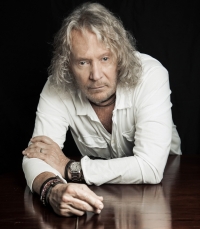
Marcos Kostenbader Valle is a Brazilian singer, songwriter, and record producer. He has produced works in many musical styles, including bossa nova, samba, and fusions of rock, soul, jazz, and dance music with Brazilian styles. Valle is regarded as one of the greatest Brazilian artists of all time.
Joy Webb
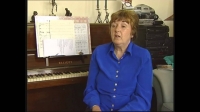
1960s UK Christian music group led by classically trained keyboard player and singer Joy Webb.
Nicole Russo
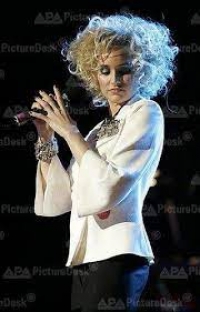
Nicole Russo Musical artist Born: 1979 (age 43 years), London, United Kingdom Movies: You Might Be Wrong, The Mercury Factor, Surrender Songs You Are the Universe Shelter · 1994 Never Stop The Brand New Heavies · 1990 Dream On Dreamer Brother Sister · 1994.
Heinrich Wilhelm Ernst

Heinrich Wilhelm Ernst (8 June 1812 – 8 October 1865) was a Moravian-Jewish violinist, violist and composer. He was widely seen as the outstanding violinist of his time and one of Niccolò Paganini's greatest successors.He was a highly esteemed artist in his day. Many saw him as the superior violinist of his time and Paganini's greatest successor. Not only did he contribute to polyphonic playing, but he also discovered new idiomatic ways to compose polyphonically conceived violin music. His friends included Hector Berlioz and Felix Mendelssohn.
Milton Nascimento
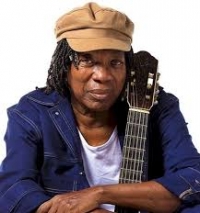
Milton Nascimento is a prominent Brazilian singer-songwriter and guitarist
John Gunn
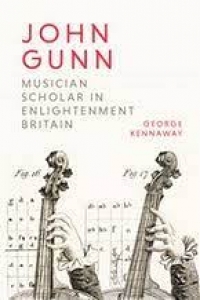
The Scottish cellist and antiquarian John Gunn (1766-1824) is unique among British writers on music in the late eighteenth and early nineteenth century.
Joseph Perkins

Joseph Perkins is a London based jazz/session guitarist, multi-instrumentalist, composer, educator and postgraduate from City University of London, BMus(Hons), M.A. with performance tuition from the Guildhall School of Music and Drama. He has studied guitar with Scott Henderson, Wayne Krantz and Stuart Hall.
Bond Quartet

Together Tania Davis (Violin), Eos Counsell (violin), Elspeth Hanson (viola) and Gay-Yee Westerhoff (cello) complete the line-up of BOND.
At its launch, BOND was hailed in the press as ‘the Spice Girls of Classical music’, and went onto turn the world of classical crossover music on its head, spawning many electric string groups inspired by its unique sound.
The members of BOND draw their inspiration from classical, latin, folk, jazz, rock, pop, electro, Indian and middle eastern styles. They have built a very active and loyal international fan base over the years and, since their debut, BOND have sold over 4 million albums worldwide, making BOND the best-selling string quartet of all time.
At its launch, BOND was hailed in the press as ‘the Spice Girls of Classical music’, and went onto turn the world of classical crossover music on its head, spawning many electric string groups inspired by its unique sound.
The members of BOND draw their inspiration from classical, latin, folk, jazz, rock, pop, electro, Indian and middle eastern styles. They have built a very active and loyal international fan base over the years and, since their debut, BOND have sold over 4 million albums worldwide, making BOND the best-selling string quartet of all time.
Heinrich Schütz
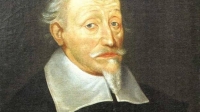
Heinrich Schütz was a German composer and organist, generally regarded as the most important German composer before Johann Sebastian Bach, as well as one of the most important composers of the 17th century.
robert kahn
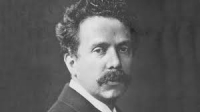
Robert Kahn (21 July 1865 – 29 May 1951) was a German composer, pianist, and music teacher.
Kahn was born in Mannheim, the second son of Bernhard Kahn and Emma Eberstadt. One of his seven siblings was the wealthy financier Otto Kahn whose son Roger Wolfe Kahn was a successful jazz musician, composer and aviator. His parents belonged to a distinguished German-Jewish family of bankers and merchants. In 1882, Kahn entered the Königlichen Hochschule für Musik in Berlin, where he studied for the next three years. Between 1885 and 1886, he continued his musical education under the tutelage of Josef Rheinberger in Munich. On a visit to Vienna the following year, Kahn met and befriended composer Johannes Brahms, who offered to make Kahn his pupil. Although Kahn declined the invitation out of diffidence, Brahms's music would exert a profound influence on his compositional style throughout his career.
Kahn was born in Mannheim, the second son of Bernhard Kahn and Emma Eberstadt. One of his seven siblings was the wealthy financier Otto Kahn whose son Roger Wolfe Kahn was a successful jazz musician, composer and aviator. His parents belonged to a distinguished German-Jewish family of bankers and merchants. In 1882, Kahn entered the Königlichen Hochschule für Musik in Berlin, where he studied for the next three years. Between 1885 and 1886, he continued his musical education under the tutelage of Josef Rheinberger in Munich. On a visit to Vienna the following year, Kahn met and befriended composer Johannes Brahms, who offered to make Kahn his pupil. Although Kahn declined the invitation out of diffidence, Brahms's music would exert a profound influence on his compositional style throughout his career.
Paul Desmond
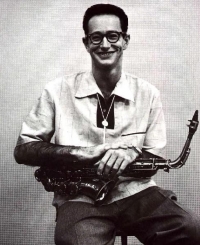
Paul Desmond (November 25, 1924 – May 30, 1977), born Paul Emil Breitenfeld, was a jazz alto saxophonist and composer born in San Francisco, best known for the work he did in the Dave Brubeck Quartet and for penning that group's greatest hit, "Take Five". Known to have possessed an idiosyncratic wit, he was one of the most popular musicians to come out of the West Coast's "cool jazz" scene. He played a Selmer Super Balanced Action alto saxophone with an M. C. Gregory model 4A-18M mouthpiece — both circa 1951 — with Rico 3 ½ reeds.
In addition to his work with Brubeck he led several of his own groups and did significant collaborations with artists such as Gerry Mulligan, Jim Hall and Chet Baker. After years of chain smoking and general poor health, Desmond succumbed to lung cancer in 1977 following one last tour with Brubeck.
In addition to his work with Brubeck he led several of his own groups and did significant collaborations with artists such as Gerry Mulligan, Jim Hall and Chet Baker. After years of chain smoking and general poor health, Desmond succumbed to lung cancer in 1977 following one last tour with Brubeck.
lady john scott
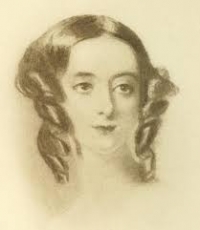
Alicia Ann, Lady John Scott, (née Alicia Ann Spottiswoode) (24 June 1810 – 12 March 1900) was a Scottish songwriter and composer known chiefly for the tune, "Annie Laurie", to which the words of a 17th-century poet, William Douglas, were setShe was the oldest daughter of John Spottiswoode of Berwickshire and his wife Helen Wauchope of Niddrie-Mains. On 16 March 1836 she married Lord John Douglas Scott, a younger son of the 4th Duke of Buccleuch, and consequently was known as Lady John Scott. Lord John Scott died in 1860. Under the will of her father, she resumed her maiden name Spottiswoode in 1866, and was sometimes known as Lady John Scott Spottiswoode.
Dave Cushman

Dave Cushman Music - Composing, Arranging, Copying, Arrangements.
Jerry Bock
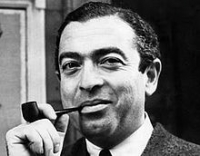
Jerrold Lewis "Jerry" Bock (November 23, 1928 – November 3, 2010) was an American musical theater composer. He received the Tony Award for Best Musical and the Pulitzer Prize for Drama with Sheldon Harnick for their 1959 musical Fiorello! and the Tony Award for Best Composer and Lyricist for the 1964 musical Fiddler on the Roof with Harnick.
 Sheet Music Network is a site for those who wants to access popular sheet music easily,
letting them download the sheet music for free for trial purposes.
It's completely free to download and try the listed sheet music, but you have to delete the files after 24 hours of trial.
Don't forget, if you like the piece of music you have just learned playing,
treat the artist with respect, and go buy the original sheet music.
Sheet Music Network is a site for those who wants to access popular sheet music easily,
letting them download the sheet music for free for trial purposes.
It's completely free to download and try the listed sheet music, but you have to delete the files after 24 hours of trial.
Don't forget, if you like the piece of music you have just learned playing,
treat the artist with respect, and go buy the original sheet music.
